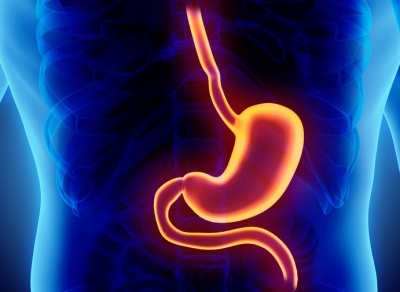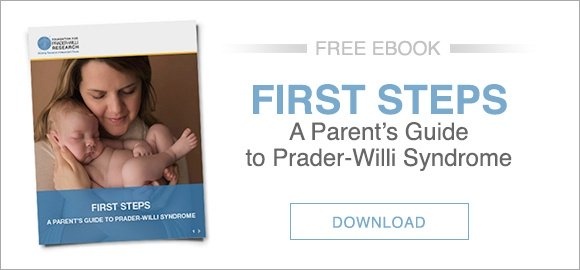 There are numerous hormones that are intricately involved in connecting the stomach to the brain and telling us when we are hungry or full. One of these hormones is ghrelin, which is often referred to as "the hunger hormone." Although individuals with PWS have higher than typical levels of ghrelin, it is still unclear whether higher ghrelin drives hyperphagia in PWS. The underlying cause for higher levels of ghrelin in PWS is also unknown.
There are numerous hormones that are intricately involved in connecting the stomach to the brain and telling us when we are hungry or full. One of these hormones is ghrelin, which is often referred to as "the hunger hormone." Although individuals with PWS have higher than typical levels of ghrelin, it is still unclear whether higher ghrelin drives hyperphagia in PWS. The underlying cause for higher levels of ghrelin in PWS is also unknown.
Teasing out the role of ghrelin will help direct potential therapies targeted at the ghrelin system. Dr. Jeffrey Zigman at the University of Texas Southwestern is working to answer some of the questions around ghrelin with his project "Ghrelin: Is it detrimental, beneficial, or inconsequential in Prader-Willi Syndrome?." The project explores whether high ghrelin in PWS is "good" or "bad."
Ghrelin May Play a Protective Role in PWS
Dr. Zigman's group is specifically testing the hypotheses that elevated levels of ghrelin may play a protective role in PWS, working to combat other issues such as reduced growth hormone, difficulty regulating blood glucose levels and mental health. The lab uses mouse models of PWS and a variety of tests that measure ghrelin activity, metabolism, food-seeking and other behaviors. Focusing on the neonatal (newborn) period, the team will explore whether disrupting the ghrelin system has a positive or negative impact on these measures.
Dr. Zigman is an active member of the PWS research community. He has been highlighted in our researcher spotlight series, and work from his previously funded FPWR projects has led to numerous publications, as well as a $300,000 grant from the NIH. We have been fortunate to have Dr. Zigman present his work at several FPWR conferences, most recently in 2015 in Austin.
To hear from more researchers in the field like Dr. Zigman, please mark your calendars for the upcoming FPWR Family Conference in New Orleans in October 2019!
Learn more about the importance of growth hormone therapy for PWS.








